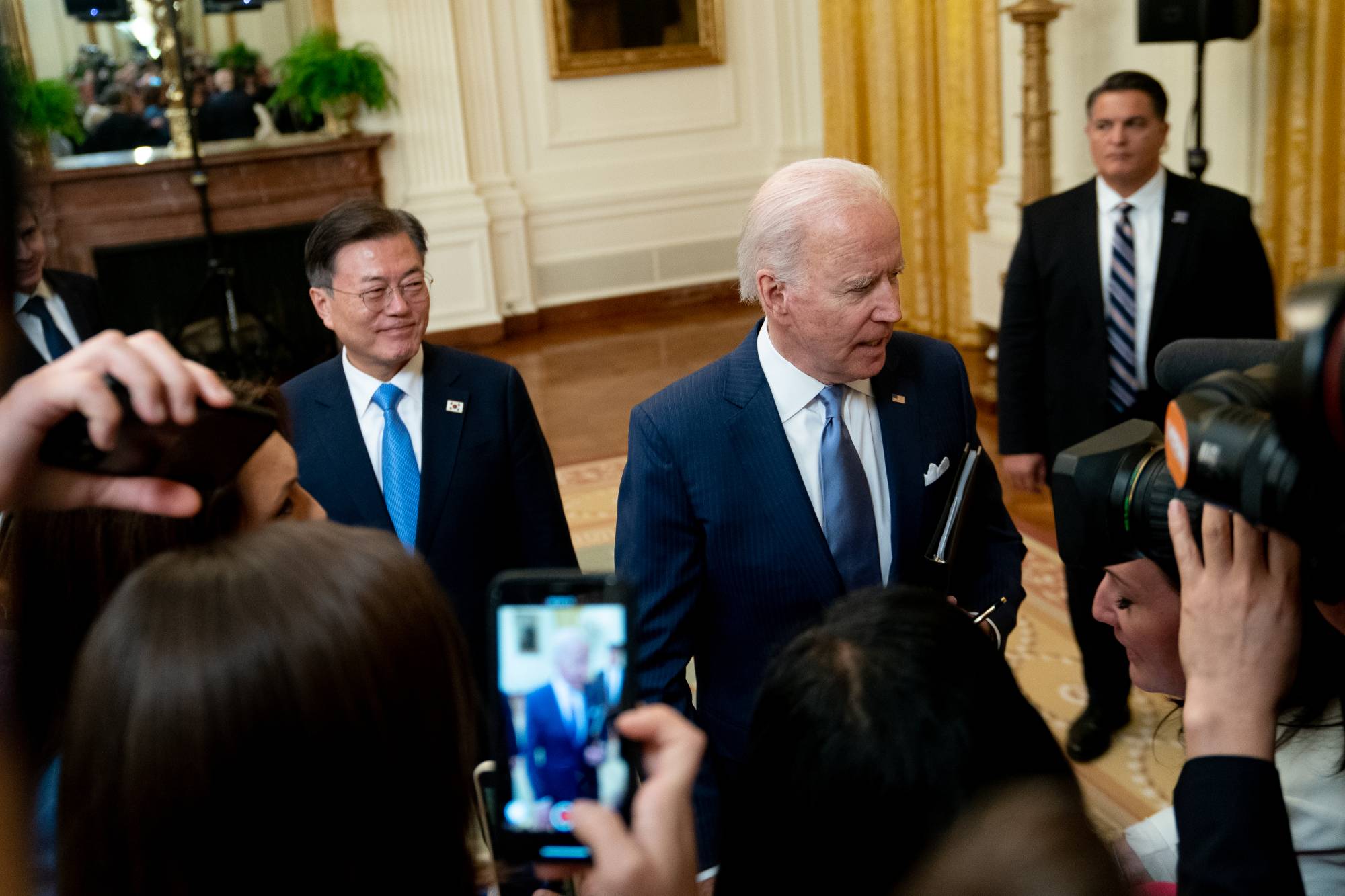Last week’s summit between U.S. President Joe Biden and South Korean President Moon Jae-in was a resounding success. All signals and statements reinforced the image of an alliance that is moving forward with both parties in close alignment. There were no obvious notes of discord and both governments could conclude that respect was mutual, objectives were met and the bilateral partnership was more solid than before.
For all those successes, I can’t escape the feeling that a chance was missed. The two countries identified a long list of shared concerns and seemed ready to act upon them. But all action was framed within a bilateral context. The action items mirrored those of other recent high-level meetings between the U.S. and its security partners, yet made no reference to them. This failure to look beyond the alliance blots what was otherwise a very successful summit and bodes ill for the evolution of this vital security partnership.
In the run-up to the summit, there was some concern. President Moon’s commitment — some would say eagerness — to advance relations with North Korea was feared to clash with President Biden’s skepticism about engaging Pyongyang. South Korean reluctance to directly challenge China was also thought to presage a split that could undermine alliance solidarity.



















With your current subscription plan you can comment on stories. However, before writing your first comment, please create a display name in the Profile section of your subscriber account page.